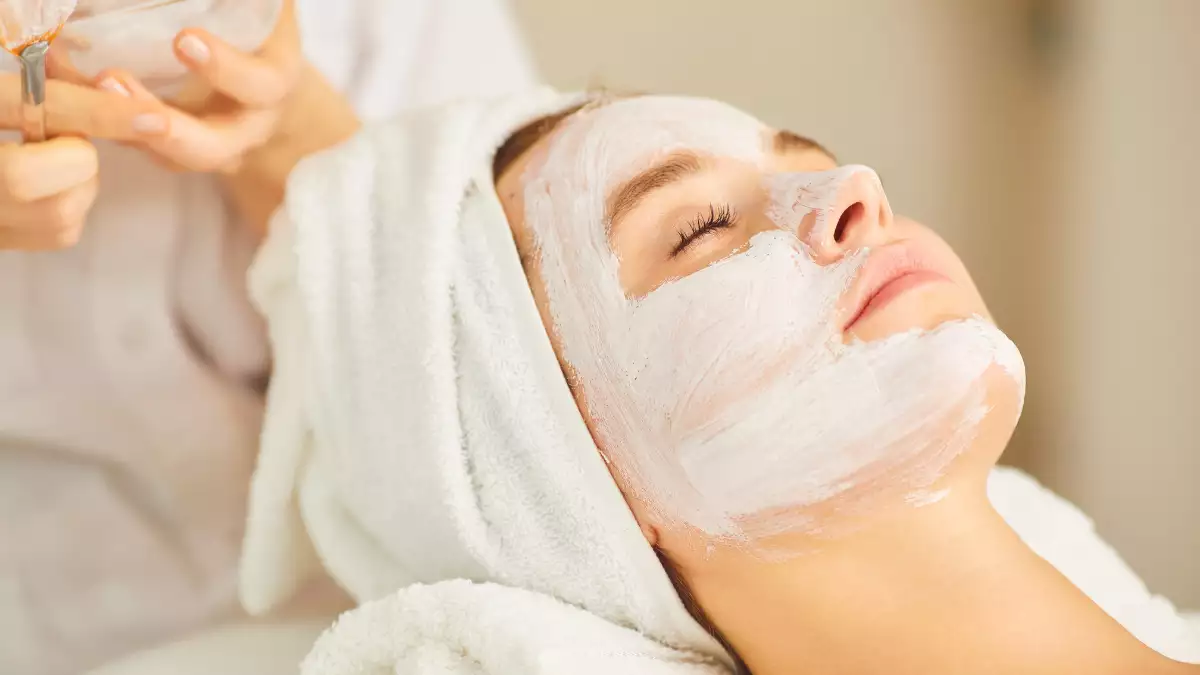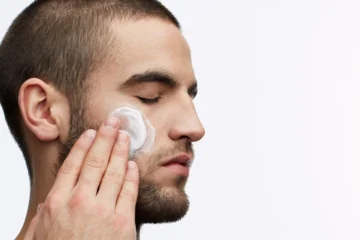Healthy skin isn’t just about looking good; it’s about feeling good too. With the rise in awareness about skincare, more people are paying attention to how they can protect and maintain their skin’s barrier. One of the most crucial aspects of this is choosing the right sunscreen. This blog post aims to guide you through everything you need to know about selecting the best sunscreen, backed by expert advice and scientific research.
Understanding the Signs of a Damaged Skin Barrier
The first step in protecting your skin is understanding when something’s wrong. Face mapping can help identify areas of concern. For instance, redness around the nose and cheeks could indicate a compromised barrier.
Common signs of a damaged skin barrier include dryness, flakiness, and irritation. If your skin feels tight or itchy, it may be a sign that your barrier needs some TLC. Recognizing these symptoms early can help you take the necessary steps to prevent further damage.
Factors Contributing to Skin Barrier Damage
Several factors can contribute to skin barrier damage. Environmental stressors like pollution and UV radiation are significant culprits. They can break down the skin’s protective layer, making it more susceptible to damage.
Inappropriate skincare routines can also harm your skin. Over-exfoliation, using harsh products, or neglecting hydration can weaken your skin barrier. It’s crucial to use products that support rather than strip your skin’s natural defenses.
Natural aging is another factor. As we age, our skin’s ability to retain moisture diminishes, making it more prone to damage. Incorporating products that boost hydration and repair into your routine can combat these effects.
Expert Advice on Restoring the Skin Barrier
“A healthy skin barrier is crucial for protecting against environmental damage and maintaining hydration. Choosing the right sunscreen is a key part of this protection,” says Dr. Jane Smith, a renowned dermatologist.
Understanding your skin’s unique needs is essential. “Look for products that not only offer sun protection but also support your skin health,” advises Dr. Alex Johnson, a skincare expert. Using the right products consistently can make a significant difference.
“Many people underestimate the importance of sunscreen, particularly in their daily routine. A broad-spectrum sunscreen is the foundation of any skincare regimen,” emphasizes Dr. Emily Lee, a dermatologic surgeon.
How to Choose the Right Sunscreen
When selecting a sunscreen, there are several key factors to keep in mind to ensure you’re providing optimal protection for your skin. First and foremost, choose a broad-spectrum sunscreen, which protects against both UVA and UVB rays. UVA rays are primarily responsible for premature aging and skin cancer, while UVB rays can cause sunburn. A product with an SPF of at least 30 is recommended for daily use, as it blocks about 97% of the sun’s rays.
Additionally, consider your skin type when selecting a formulation. For oily or acne-prone skin, opt for non-comedogenic, oil-free sunscreens that won’t clog pores. For dry skin, look for hydrating formulas containing ingredients like hyaluronic acid or glycerin that provide additional moisture. If you have sensitive skin, mineral sunscreens with zinc oxide or titanium dioxide are often gentler and less likely to cause irritation.
Lastly, pay attention to the texture and finish of the sunscreen. Many modern formulations come in various forms, such as gels, creams, sprays, or stick formats, allowing you to find one that feels comfortable on your skin. Remember to reapply every two hours, or more often if swimming or sweating, to maintain effective sun protection throughout the day.
Step-by-Step Guide to Repairing the Skin Barrier
Choosing the Right Products
When selecting sunscreen, key ingredients to look for include zinc oxide and titanium dioxide. These provide broad-spectrum protection against UVA and UVB rays. Avoid products with alcohol and fragrances, as they can irritate sensitive skin.
Products to avoid include those containing oxybenzone and octinoxate, which can cause allergic reactions and disrupt hormone levels. Opt for mineral-based sunscreens that are gentle yet effective.
Establishing a Consistent Skincare Routine
Morning and evening routines are essential for maintaining a healthy skin barrier. In the morning, start with a gentle cleanser, followed by a hydrating serum, moisturizer, and, most importantly, sunscreen. In the evening, cleanse, apply a nourishing serum, and use a repairing cream.
Consistency is key. Using the right products regularly ensures that your skin gets the protection and nourishment it needs. Make it a habit to follow your routine diligently.
Lifestyle Adjustments for Skin Health
Dietary and environmental considerations play a significant role in skin health. Eating a balanced diet rich in antioxidants and staying hydrated can improve your skin’s resilience.
Habits to adopt include wearing protective clothing, seeking shade, and using air purifiers to reduce indoor pollution. These changes can significantly impact your skin’s overall health and barrier function.
Visual Aids for Better Understanding
Visual aids can help you better understand how to protect and repair your skin barrier. Before-and-after images showcasing the effects of a proper skincare routine can be incredibly motivating.
Infographics on skin barrier repair provide a quick reference for key steps and ingredients. A video tutorial on a skincare routine can guide you through each step, ensuring you’re doing everything correctly.
Credible Sources and Studies
For those interested in further reading, here are some credible sources:
- American Academy of Dermatology
- Dermatology Times
- Journal of Investigative Dermatology
- Skin Health Alliance
- National Institute of Arthritis and Musculoskeletal and Skin Diseases
These sources offer a wealth of information on skin health and the science behind skincare products.
Conclusion
In summary, choosing the right sunscreen is crucial for maintaining a healthy skin barrier. Recognizing the signs of damage, understanding contributing factors, and following expert advice can help you make informed decisions.
Remember, a broad-spectrum sunscreen is your best defense against environmental damage. Incorporate it into a consistent skincare routine, and make lifestyle adjustments for optimal skin health.
For personalized advice, consider booking a consultation with one of our dermatologists. They can help you tailor your skincare routine to meet your unique needs. Your skin will thank you!
By following these guidelines, you can protect your skin from damage and maintain a healthy, glowing complexion. Here’s to better skin health—one sunscreen at a time!





